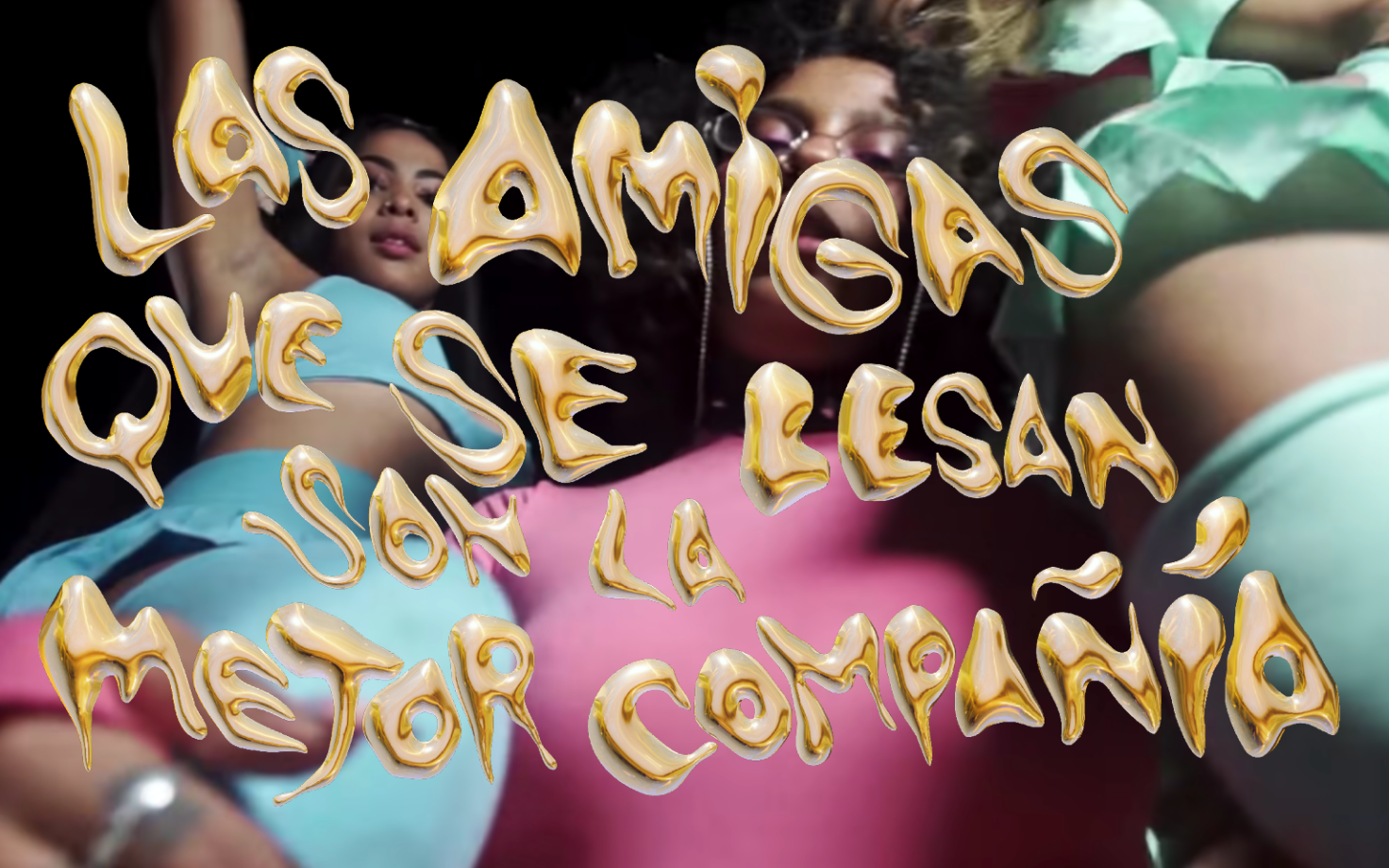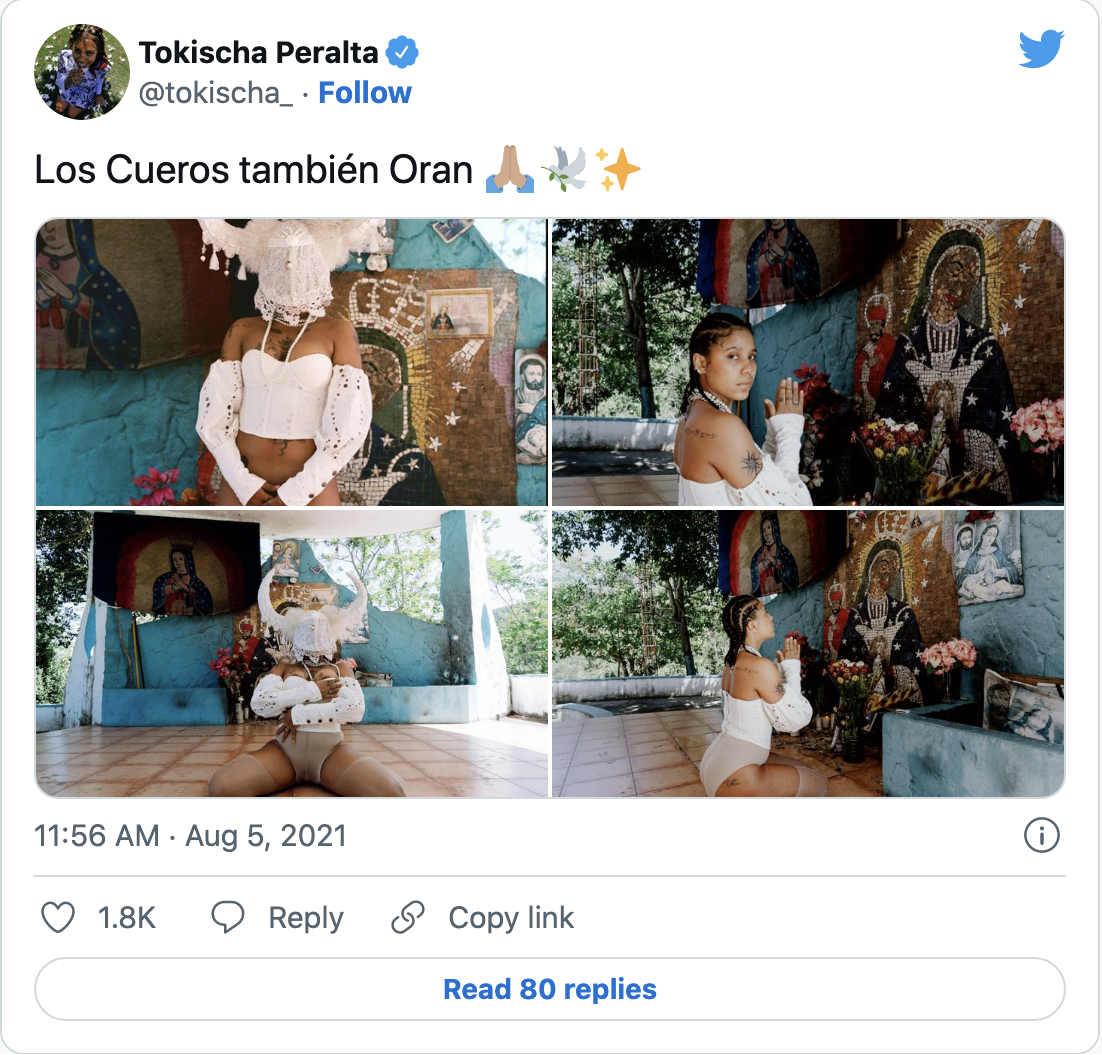It is a world where people roll on Molly and pass bottles of Brugal from hand to hand; a world where someone is always over a toilet; a world where everyone, gloriously, is for the streets.
Most are from the streets, too. This includes Tokischa, a sex-positive, queer rapper from the Dominican Republic (DR) who has quickly emerged as one of the top artists in Dominican dembow—a genre best summed up as reggaetón’s bawdier, spitfire cousin, with roots in the Jamaican rhythm of the same name. Born in 1996, Tokischa grew up in and around Los Frailes, a humble barrio just outside the capital city of Santo Domingo. Barrios like it often serve as the backdrop to Tokischa’s raucous music videos, which also feature her misfit cast of characters. Together they represent a Dominican counterculture that disrupts the everyday humdrum of tourists and picturesque visions of paradise promoted in the media.
This disruption is central to Tokischa’s work. With the frequent creative direction of her manager, Raymi Paulus, Tokischa has built an aesthetic rooted in real-world joy and eroticism—the kind which, as Audre Lorde writes, contains all the power to be “self-affirming in the face of a racist, patriarchal, and anti-erotic society.”2 Take Tokischa’s video for “Linda (Pretty),” a collaboration with Spanish singer Rosalía. Released in September 2021, “Linda” luxuriates in moments of queer sensual kinship in ways not often accepted in the DR, let alone within the machista genre of dembow.


